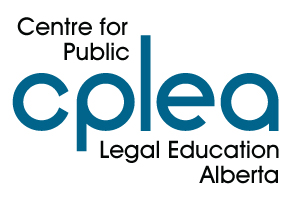The purpose of this site is to provide plain language information about the law to victims of violence in intimate relationships and their supporters. Willownet provides legal information that may help you if you are experiencing violence in a relationship. The site has information that is helpful on: facts about abuse, effects of relationship violence, what the law says about abuse, leaving the relationship safely (safety plan), taking your kids with you, pets, Protective Orders (EPOs, KBPOs) and going to court. The site also provides links to other family violence resources.
Here you will find selected resources focused on women’s rights and equality issues as well as women’s participation in the law and public policy development. If you are looking for resources aimed at Aboriginal women, see the section Aboriginal Women.
For resources about specific legal topics of concern to women (for example, domestic abuse or family law) see the section Learn More About... or search the list of all legal topics.
CPLEA Suggested Resources
Not sure where to begin finding answers to your questions. Get started with our suggested resources. See additional resources below for more information.
The Women's Centre of Calgary is an ongoing source of information, support and advocacy. The Centre offers women quick access to emergency food, personal care supplies and bus tickets. It provides referrals to other agencies for food, clothing, furniture, housing, health, employment, education and recreation. The Centre operates a Legal Advice Clinic where volunteer lawyers provide free, half-hour legal advice sessions to women. The clinic is aimed at providing women with the preliminary information and support they may need to access the legal system. Family and other types of law are addressed, but not criminal law.
Alberta Resources
The Women’s Resource Centre was born on March 10, 1984 with goals of referring women to the appropriate agencies to gain assistance, as well as having drop-in hours. The Centre has a resource library, implements social programs and assists those in need through their thrift store and various services.
Free Domestic Violence resource that CPLEA offers that are available in either Print or as a Download.
These resources provide general legal information to those dealing with Domestic Violence in Alberta. These material do NOT provide legal advice!
In August 2016, the Residential Tenancies (Safer Spaces for Victims of Domestic Violence) Amendment Act, Termination of Tenancy (Domestic Violence) Regulation, and amendments to the RTA Ministerial Regulation, were proclaimed. These changes to the RTA allow victims of domestic violence to end a tenancy early and without financial penalty. This legislation applies in cases where if the tenancy continues: • The tenant’s safety is at risk; • A dependant child’s safety is at risk; or • A protected adult’s safety is at risk.
This online publication is from the Student Legal Services of Edmonton. Includes information about: related offences, escort agencies, public indecency, getting arrested for prostitution charges, the Sex Trade Offender Program, and the protection of sexually exploited children,
The Rainbow Pages is a resource guide developed by The Family Centre to provide Two-Spirit, Lesbian, Gay, Bisexual, Transgender, Queer, Intersex, Asexual+ (2SLGBTQIA+) youth and youth-serving communities with a consolidated guide of support available in Edmonton. We provide a directory of services and supports on our website as well as physical brochures for organizations and the community.
This website is meant to make a traditionally complex area of knowledge easier to understand and more accessible. Many Albertan women will benefit from this resource, including those who are new to the English language, have no background in the law, those who cannot afford legal advice and those in remote communities without internet access. Although it is not meant to replace expert advice the resource is a starting place and a guide for women who don’t know where to look.
Canada/Federal
2019 Voting Guide for Indigenous Women, Two-spirit, and LGBTQQIA Voters was created by the Native Women's Association of Canada (NWAC) with support from Elections Canada. The voting guide takes Indigenous women and gender-diverse people through a step-by-step process:
- how to register to vote
- how to vote if you are a student
- how to prove your identity and address
- what types of identification items you can use to prove your identity and address
- how to vote at the advance polls, by mail or on election day
- what to expect at the polling station
Along with a list of the political parties, the guide offers a number of tips on how to decide whom to vote for (for example, think about the issues you care about and look at how the different parties address those issues) and provides a section on how Canada’s political system works.
CAEFS is an association of self-governing, community-based Elizabeth Fry Societies that work with and for women and girls in the justice system, particularly those who are, or may be, criminalized. The website provides contact information for member societies across the country and a directory of programs and services in each region.
CERA’s Women’s Program was established in early 2000 to address low-income women’s experiences of inequality and discrimination in housing in Canada. The Women’s Program undertakes advocacy, litigation support, networking and research aimed at investigating and addressing the economic and social conditions that contribute to women’s inequality in housing.
The Hope for Wellness Helpline is available to all Indigenous people across Canada. Experienced and culturally competent counsellors are reachable by telephone and online ‘chat’ 24 hours a day, 7 days a week.
Telephone support is available in English, French, Cree, Ojibway, and Inuktitut. Online Chat services are only available in English and French.
Founded in 1893, the National Council of Women of Canada is an NGO (non-governmental organization) whose mission is to improve the quality of life for women, families, and society through a forum of member organizations and individuals. Their website details current and past initiatives, including correspondence to the federal government as well as reports and press releases on a variety of topics.
The Native Women’s Association of Canada (NWAC) is a National Indigenous Organization representing the political voice of Indigenous women, girls and gender diverse people in Canada, inclusive of First Nations on and off reserve, status and non-status, disenfranchised, Métis and Inuit. NWAC works on a variety of issues such as employment, labour and business, health, violence prevention and safety, justice and human rights, environment, early learning childcare and international affairs.
The Native Women's Association of Canada (NWAC) is founded on the collective goal to enhance, promote, and foster the social, economic, cultural and political well-being of First Nations and Métis women within First Nation, Métis and Canadian societies. As a national organization representing Aboriginal women since 1974, NWAC’s mandate is to achieve equality for all Aboriginal women in Canada. NWAC is actively involved with partner organizations across the globe towards this goal, including the United Nations and Amnesty International to end the discrimination against Indigenous women.
This resource guide by the Native Courtworker and Counselling Association of British Columbia provides readers with valuable tools to address the issue of safety in an easy to read format.(PDF - 50 pages, 2011)








Follow CPLEA